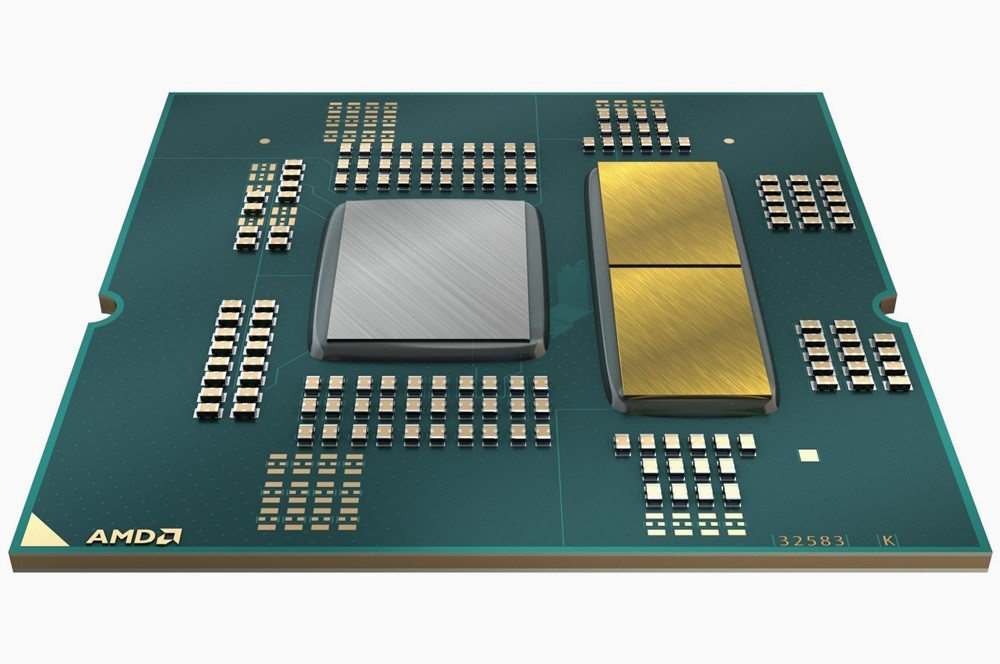AMD Zen 5 will use TSMC’s 3nm node
- February 19, 2024
- 0
We know that Zen 5 has been in development for some time now and that AMD is working to launch this new architecture by the end of 2024.
We know that Zen 5 has been in development for some time now and that AMD is working to launch this new architecture by the end of 2024.
We know that Zen 5 has been in development for some time now and that AMD is working to launch this new architecture by the end of 2024. We don’t have a specific launch date yet, but according to the latest information, it seems that it will arrive between the third and fourth quarters this same year.
If all goes according to plan, the Zen 5 will make the jump to TSMC’s 3nm node. This contrasts with previous information which claimed that AMD is going to use the 4nm node of the Taiwanese giant, although we have to remember that we are talking about CPU chiplet, also known as a CCD, and not an I/O chiplet. Both will be used to make the new Ryzen 9000, which will be the processors that will use this new architecture.
An I/O chiplet could be made on TSMC’s 5nm node or maybe 4nm, Nothing is definitive at the moment and both options are open. As usual, it will integrate the entire input and output subsystem, RAM controllers and also an integrated GPU.

The jump to the 3 nm node will enable a significant reduction in the size of aa transistors substantial improvement in efficiency. However, this will reduce the surface area of the chip and, as already happened with Zen 4, it will cause heat to be concentrated into a smaller space, forcing AMD to look for new ways to speed up heat conduction and dissipation.
We can also expect a CPI increase compared to the Zen 4, which could be around between 10% and 15%, thanks to the changes introduced at the architectural level. I still don’t have all the details, but rumors point to four big keys:
It can be expected a increased working frequency, although I don’t think it will be as striking as we saw with the arrival of Zen 4, which represented a very large increase over Zen 3 (in specific cases, about 1 GHz more thanks to turbo mode). New motherboards with 800 series chipsets will support faster memories and It is said that Zen 5 could work optimally with 8 GHz assemblies.
Ryzen 9000 processors They will be compatible with current AM5 motherboards, equipped with 700 series chipsets, so you won’t have to change motherboards to install one of these new processors. Yes, it will be necessary to update the BIOS as it has happened on previous occasions under the AM4 platform.
It is not clear that AMD is going to increase the number of cores and threads, so the most powerful model of this new generation can repeat the 16 cores and 32 threads configuration. However, there is also the possibility that the Sunnyvale giant will shape the Ryzen 9 9750X with 32 cores and 64 threads, and it has even emerged that it could shape configurations with Zen 5 cores and Zen 5c cores to increase the maximum cores and threads without increasing power consumption and working temperatures.
For the rest, we can expect this new generation to come with very narrow operating frequencies from home, which means that overclocking will be very limited and it is clear that again we will see versions configured with 3D stacked L3 cache, which will specialize in gaming. It will be interesting to see what price the Ryzen 9000 will arrive at, will they be more expensive or cheaper than the Ryzen 7000 at launch? It won’t take long to find out.
Source: Muy Computer
Donald Salinas is an experienced automobile journalist and writer for Div Bracket. He brings his readers the latest news and developments from the world of automobiles, offering a unique and knowledgeable perspective on the latest trends and innovations in the automotive industry.